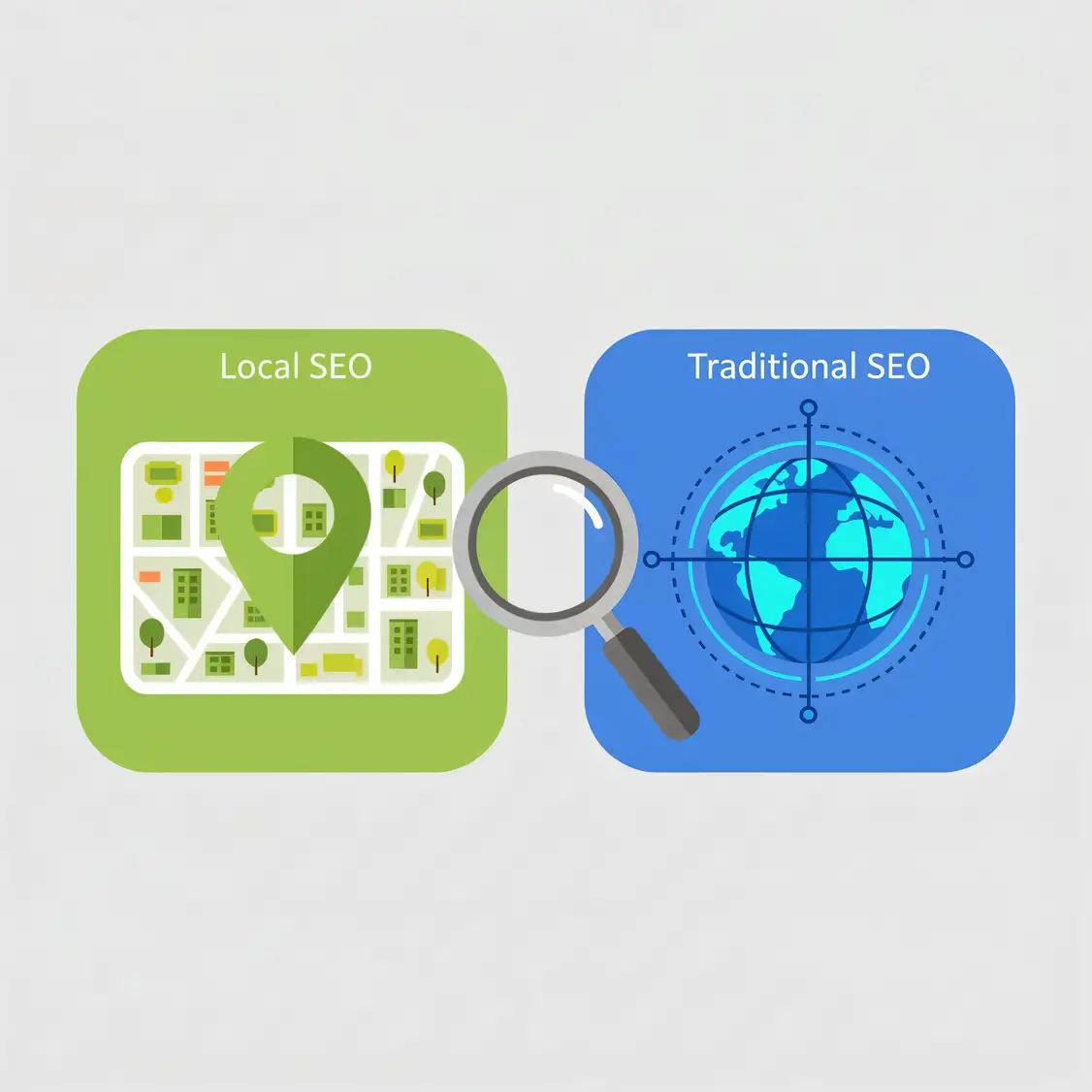With so many approaches, tips, and tools, navigating the world of search engine optimization can be confusing. For example, many business owners struggle to understand whether they should focus on local SEO vs. traditional SEO or try to implement both strategies simultaneously.
The digital landscape constantly evolves, and your SEO strategy must adapt accordingly. Understanding the fundamental differences between these approaches is crucial for making informed decisions about your online marketing efforts. This guide will help you distinguish between them and determine which is right for your business goals.
What is Traditional SEO?
Traditional SEO (sometimes called organic or national SEO) focuses on improving your website’s visibility in search engines across a broad geographical area. This approach aims to rank your website for specific keywords regardless of the searcher’s location. Traditional SEO typically targets:
- Industry-specific keywords
- Informational content
- National or international audiences
- Competitive high-volume search terms
Businesses that sell products or services online to customers anywhere would benefit most from traditional SEO vs local SEO strategies. This approach builds your online authority and helps establish your brand on a larger scale.
What is Local SEO?
Local SEO optimizes your online presence to attract more business from local searches. These searches take place on Google and other search engines when people look for businesses, products, or services in their area.
Key Components of Local SEO
- Google Business Profile optimization
- Local keyword targeting
- Local SEO citations and local business directories
- Location-specific website content
- Local link building and backlinks in SEO
Businesses with physical locations or those serving specific geographic areas benefit most from local search optimization. A skilled local SEO agency in Tulsa can help implement these strategies effectively.
Key Differences Between Local and Traditional SEO
Target Audience
Traditional SEO targets a broader audience without geographic limitations, while local SEO vs. traditional SEO is about connecting with people in your specific service area. The intent behind searches is different—local searches often indicate higher purchase intent from nearby customers.
Ranking Factors
Google uses different ranking factors for each:
Traditional SEO emphasizes:
- Website authority
- Content quality
- Backlink profile
- Technical SEO elements
Local search prioritizes:
- Proximity to the searcher
- Google Business Profile optimization
- Local citations and consistency
- Reviews and ratings
Measurement Metrics
Success metrics differ too. Traditional SEO often tracks organic traffic and conversions, while local search might focus on Google Maps visibility, direction requests, or phone calls.
How to Choose the Right Strategy
Consider these factors when deciding between SEO vs local SEO:
- Business model (service area vs. online)
- Target customer location
- Competition in your market
- Available resources and budget
Many businesses benefit from a combined approach of both search engine marketing strategies. You just have to find the right balance based on your business goals.
Making the Right SEO Choice for Your Business
Understanding the differences between local and traditional search optimization empowers you to make strategic decisions that drive real business results. Your unique business model, target audience, and goals should guide your approach to search optimization.
D2 Branding offers comprehensive digital marketing services, including customized SEO strategies tailored to your needs. We analyze your business requirements and develop an approach that maximizes your online visibility where it matters most. Whether you need national reach or local dominance, we have the expertise to help you achieve your goals. Contact our local SEO agency in Tulsa today!

